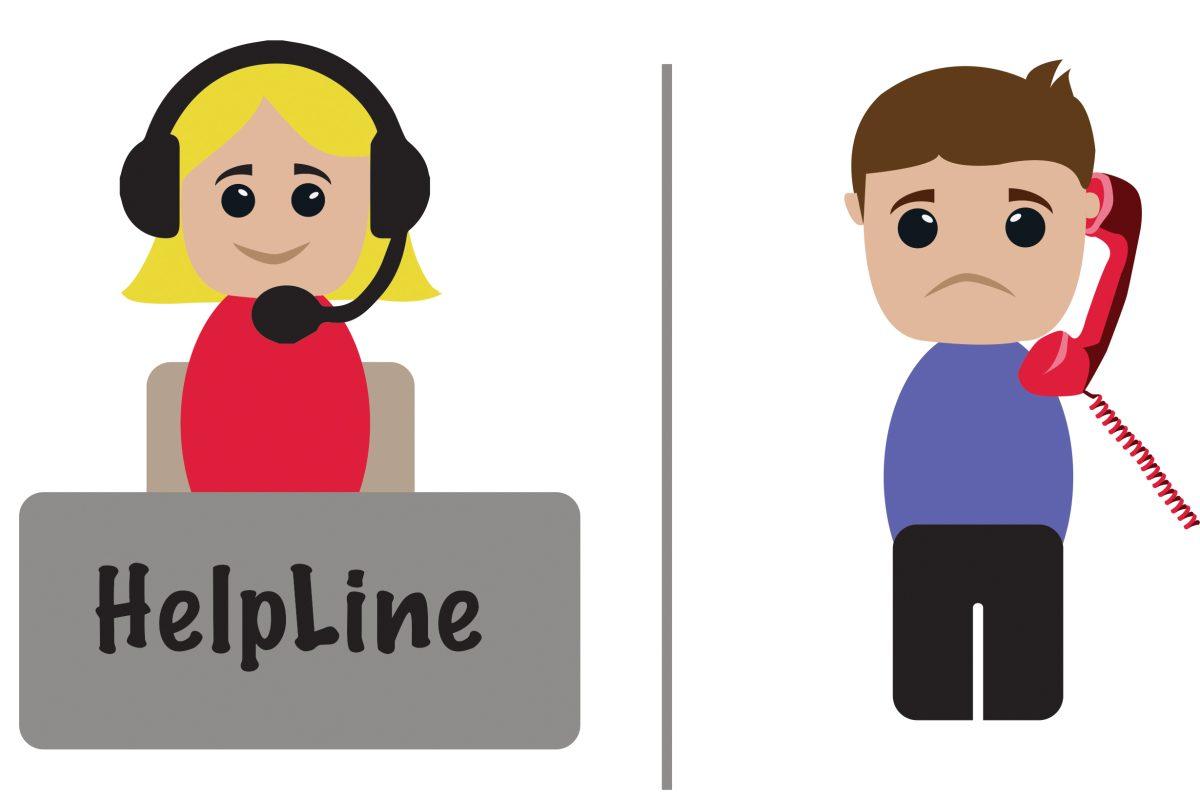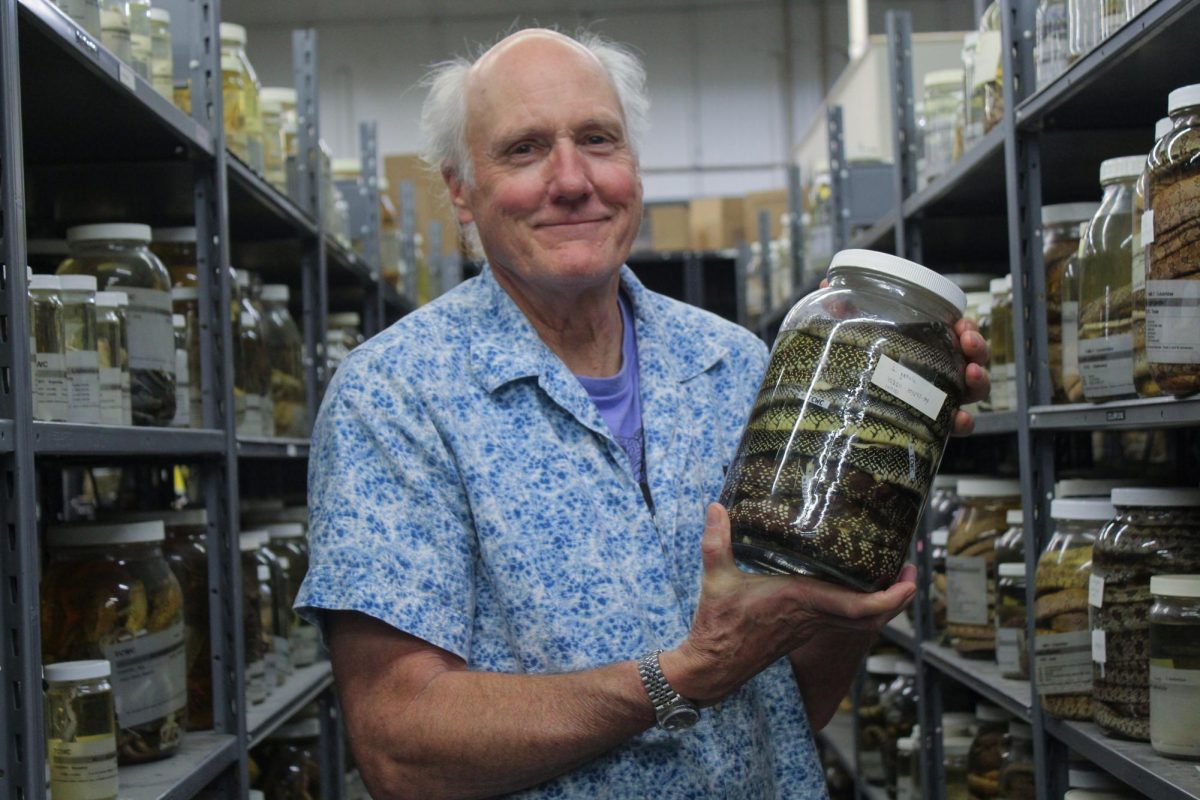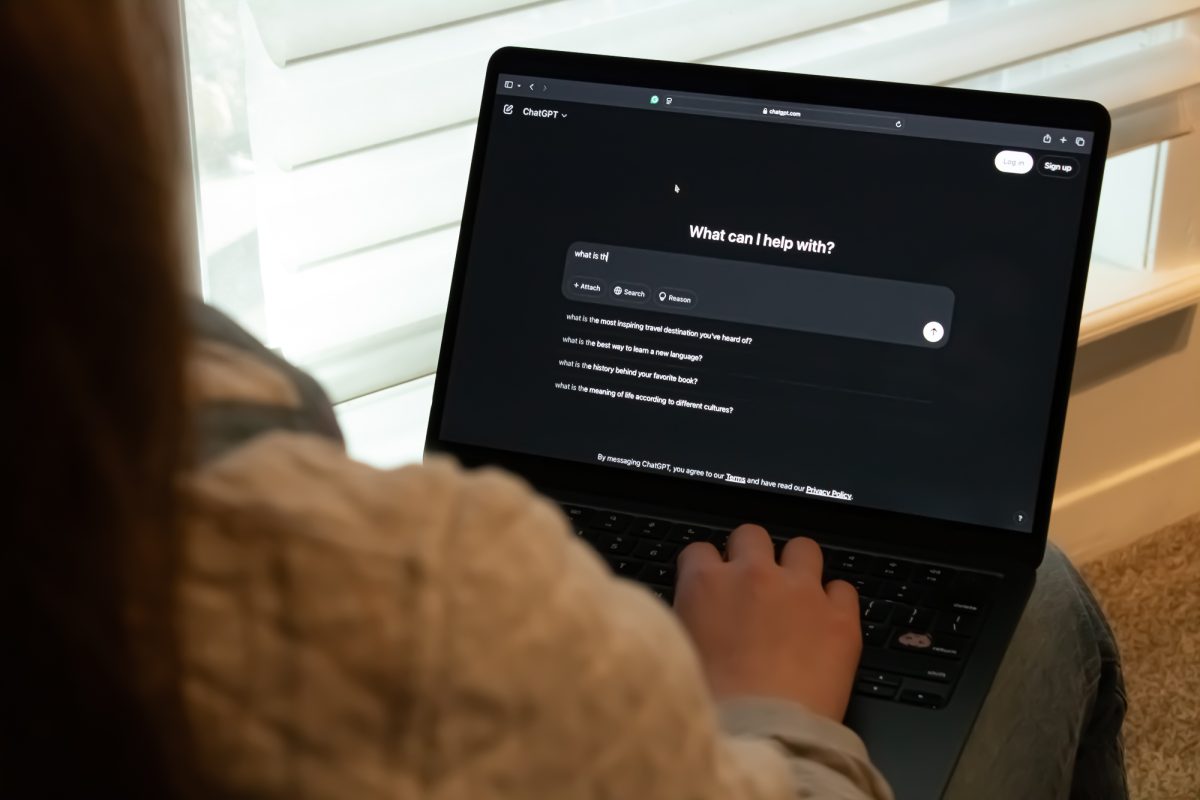An open ear is available to all students through HelpLine and the volunteers who spend countless hours listening to callers.
HelpLine aims to offer students a means to express their issues in a safe, non-judgmental way along with resources for students in need of referral, support, and crisis assessment and intervention.
HelpLine director Susan Vavra said many students today do communicate frequently, but it is electronically via text, Twitter, Snapchat or Facebook, which is drastically different from talking out loud.
“However, talking about whatever is concerning you verbally — be it in a counselor’s office or over the HelpLine — can be very helpful,” Vavra said. “Feeling heard by a listener who is non-judgemental is the service HelpLine provides. When you talk it out, it helps you feel less weighed down and when you feel heard it reminds you that others care.”
Anna Gould, a HelpLine volunteer and senior psychology major, said the training process for becoming a HelpLiner is an extensive six-day training with specialists on issues like eating disorders, anxiety and suicide. Speakers address these topics in the morning and then participants apply the information in the afternoon.
“In the afternoon you do role plays where basically current HelpLiners play your caller and you have to use the skills that you learned in training that day to handle that call as if it was a live call,” Gould said.
Madilynn Rutherford, a HelpLine volunteer and psychology junior, said talking issues out helps because the dialogue a student has in their mind about the situations they’re going through and the dialogue they have with another person can sometimes be starkly different.
“To hear yourself say things out loud and to know you’re being heard by another human being can sometimes change the way you think about situations, and it might show you a different light of the situation that you haven’t seen before,” Rutherford said.
HelpLine is completely confidential and the aspect of anonymity is what Gould said helps people to open really open up about personal issues on a variety of levels.
“People are able to talk about very sensitive topics that they may feel awkward or uncomfortable talking about with someone they know,” Gould said. “They’re able to open up about these topics to someone they will never met, they will never know the real identity of and who, by reputation, is non-judgmental and unbiased.”
Having this service on campus has endless benefits for students, especially as they transition into college, Gould said.
“I think mental health statistics show that the added stress and anxiety of being at a college campus just heightens mental health symptoms,” Gould said.
Vavra said keeping things bottled up inside can have negative mental and emotional side effects.
“Keeping things bottled up can manifest in negative side effects like feeling more stressed or having a hard time concentrating in class or while studying,” Vavra said.
Rutherford said discussing your issues with another person can be therapeutic in a way.
“People want to feel heard, they want to know they’re not alone and so something specific to HelpLine is that we’re a non-judgmental call line in the sense that you can literally talk about anything and we’re just here to listen, we’re not here to judge,” Rutherford said.
Talking It Out: HelpLine offers students a means to discuss issues
September 8, 2016
0
Donate to The Battalion
$2790
$5000
Contributed
Our Goal
Your donation will support the student journalists of Texas A&M University - College Station. Your contribution will allow us to purchase equipment and cover our annual website hosting costs, in addition to paying freelance staffers for their work, travel costs for coverage and more!
More to Discover










